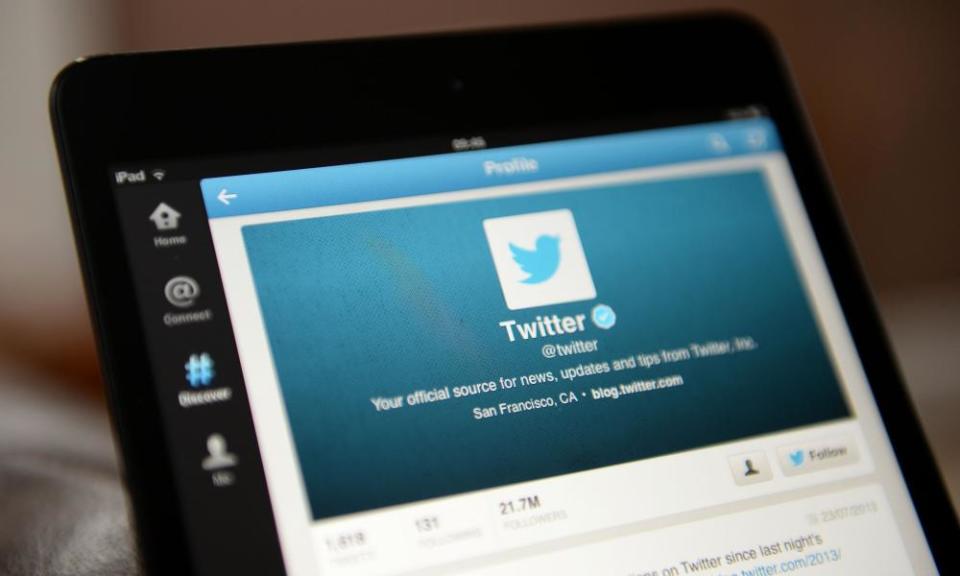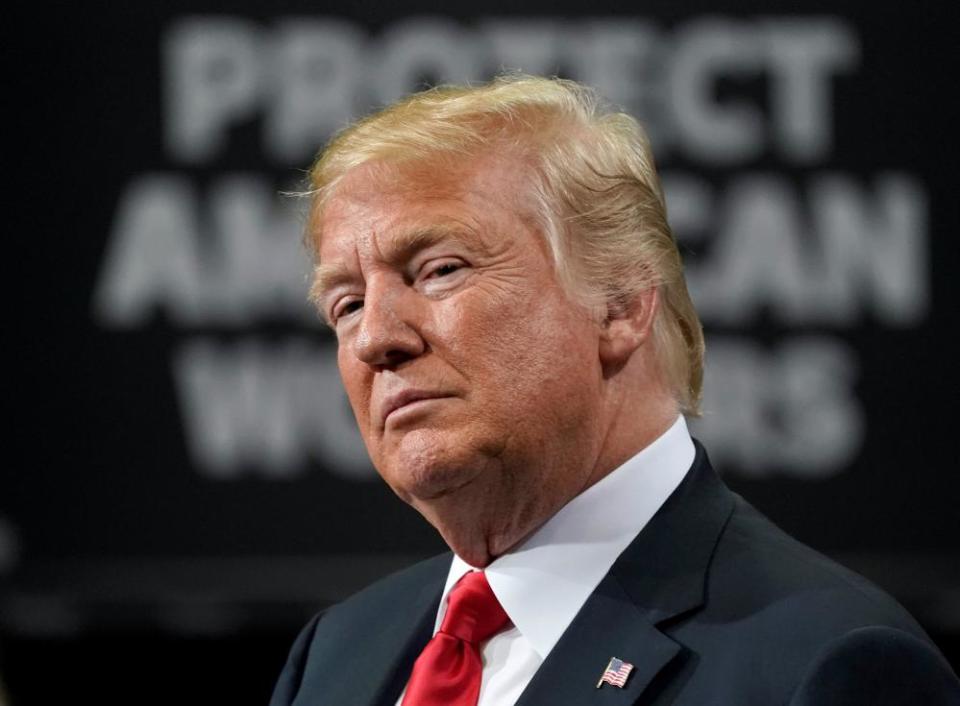What is 'shadow banning', and why did Trump tweet about it?
Conservatives believe they’ve found proof of anti-rightwing bias in social media. Twitter says they haven’t. An explainer

Why are conservatives talking about “shadow bans”?
“Twitter ‘SHADOW BANNING’ prominent Republicans,” Donald Trump tweeted Thursday morning. “Not good. We will look into this discriminatory and illegal practice at once! Many complaints.”
On Wednesday a Vice News story reported that some senior Republican officials were not visible in automatic search results. Vice framed this as “shadow banning” without providing any evidence that it was deliberate.
Conservative outlets such as Infowars and Breitbart soon picked up the story, which they saw as validation of their longstanding suspicions.
Then, on Thursday morning, Project Veritas – the rightwing muckraker James O’Keefe’s entrapment-based media enterprise – released a video claiming to show a Twitter engineer admitting to the practice. By early Thursday, conservative media outlets had published dozens of articles on the controversy.
From there, the issue made a familiar journey through Fox News into Trump’s brain, and then onto his Twitter account.
The idea that conservatives are being “shadow banned” is the latest iteration of an idea, bubbling away since the last election, that conservatives are being silenced by social media companies. Recently, conservatives have seized on changes that Twitter, in particular, has made to the way it filters users and tweets as evidence of subtle censorship.
Twitter did in fact make changes to the way it algorithmically ranks users, based on their behavior. Among other effects, this will de-prioritise abusive users in shared spaces like hashtags, search, and conversations. This means that badly behaved users will be less visible on the site. In launching the changes, Twitter explained that they were content-neutral.
But rightwing users have folded this into their contention that Twitter is “shadow banning” them. That term is internet lingo for a situation in which a social media user believes they have full access to the platform, but other users are prevented from seeing their accounts or messages.
Social media companies (and before them, forum moderators) have been frequently accused of using this technique to shut down users they see as problematic without risking the blowback that a fully-fledged ban might bring.
Is there any basis for the idea that conservatives are being targeted for shadow bans?
No – at least not based on what Vice purported to show.
Twitter’s recent changes are, according to the company, an effort to crack down on bots and bad behavior and to encourage what the company’s product lead Kayvon Beykpour calls “healthy public conversation”. Twitter says this process is mostly automated – employing “behavioral signals and machine learning” – and the company also says it is based on users’ actions, not ideologies.
“We do not shadow ban,” a Twitter spokesperson flatly told the Guardian. “Our behavioural ranking doesn’t make judgments based on political views or the substance of tweets.”

Beykpour said the problems that Vice wrote about were the result of a glitch in predictive search results that has since been corrected. He reaffirmed his intention to create a “healthier Twitter”.
O’Keefe’s video, meanwhile, offers no context for a former Twitter engineer’s quite general discussion of the concept of shadow banning. O’Keefe is well known for misleading stunt journalism, and this morning Twitter told Fox News that O’Keefe’s video was “deceptive and underhanded”.
Are conservatives really discriminated against in social media?
Conservatives have often complained about the alleged liberal bias of tech companies, but it’s not clear whether, or how, social media users of other ideological stripes have been affected by Twitter’s changes. Conservatives’ claims of “anti-conservative bias” may simply be a case of a false positive. In addition, that stance doesn’t account for the possibility that some conservative accounts may have been legitimately downranked for engaging in abusive, uncivil or trolling behaviour.
The “shadow banning” controversy is just the latest in a long line of accusations of bias conservatives have levelled at tech companies. Some on the right have gone so far as to launch legal action against companies for allegedly unfair treatment, and Republican members of Congress have grilled social media executives over their supposed efforts to shut down rightwing social media stars such as Diamond and Silk and Gateway Pundit.
The conspiracy theorist Alex Jones, in particular, has made accusations that YouTube and Facebook are censoring Infowars a staple of his broadcasts. (Somehow, his predictions of a shutdown has never come to pass.)
Progressives, as well as many journalists, make the opposite case – that social media companies are overly permissive in allowing abusive and extremist voices to remain on their platforms.
A recent undercover investigation by Channel 4 in the UK revealed that Facebook not only allows extremist content to stay on its site, but appears to value that content for the traffic it brings. Twitter has faced persistent criticism for allowing far-right accounts to persist on its site, and effectively facilitating the campaigns of rightwing activists.

